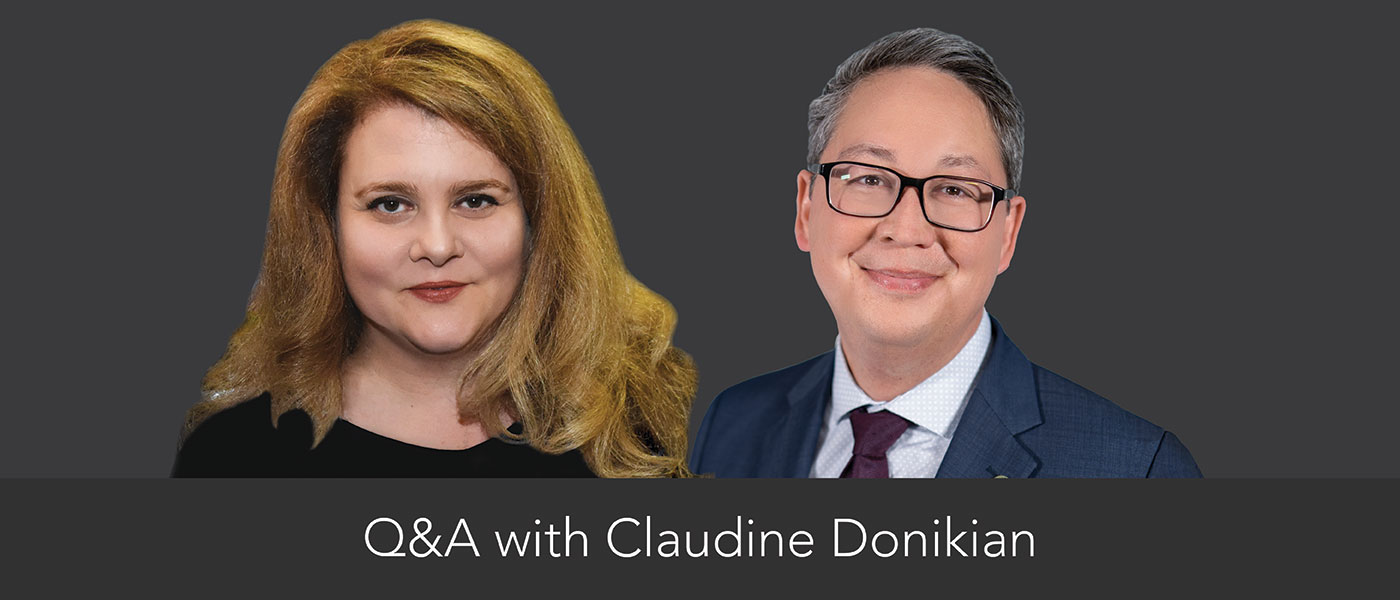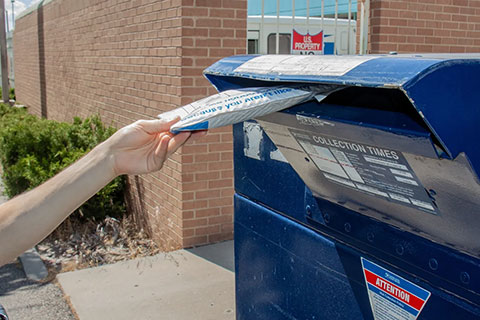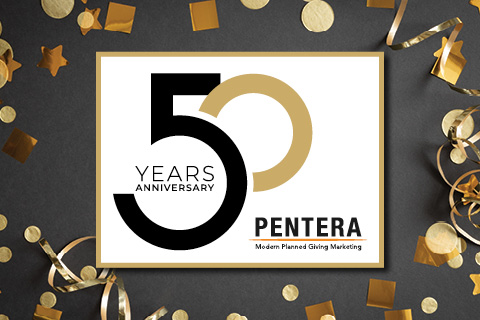
The Pentera Blog
COVID-19 - Claudine and Marion Yongue of the University of South Florida Discuss Focusing on Impact—And Donors' Amazing Responses
5th in a series
By Claudine A. Donikian, President & CEO, Pentera, Inc.
Pentera CEO Claudine Donikian recently spoke with Marion Yongue, associate vice president of development for the University of South Florida Foundation, about how organizations are handling these uncertain times due to the coronavirus. Here are excerpts from their conversation.
Claudine: Thank you for joining us for this Q&A. We have done a series of them, and people are happy to hear what organizations are doing in these unprecedented times. I have written some recommendations regarding how to work with donors, and I wanted to add to that some conversations with other industry experts about how you are adapting your planned giving programs and how you are working with donors. What has been happening with your staff and your donors?
Marion: We definitely have heightened our stewardship—whatever we can do over the phone and through the mail and any electronic means: texting, Facetime, Zoom. Some people say the older crowd doesn't do these kinds of things, but that is not entirely accurate: some seniors have no idea how to use a cell phone—and others can run circles around me with this technology.
Claudine: The use of technology during this time has really been extraordinary. Are you doing virtual group meetings for staff and for donors?
Marion: Oh, yes. Each day we have at least one virtual meeting. Let me tell you about one: This time of year we usually have a big event for a thousand people outdoors—we close off a street, and restaurants bring food. We had to cancel it, of course. But our public radio station brought together all the sponsors for a virtual toast. Instead of a nice meal and lots of guests and thanks, they put their sponsorship dollars to a matching gift fund for a Giving Day challenge the first Tuesday in May! A lot of these people would have never met each other at the normal event—but they were brought together in their homes virtually; you could see them in their homes, one from as far away as Montana.
And we do have ongoing virtual meetings too. We have team meetings to talk about a particular grant we are working on, a project of $10 million. We have a book club focused on philanthropy; there were 17 people on the call recently! And we are seeing more participation in terms of virtual meetings with donors; now that they have the time, they are making sure to meet with us.
Claudine: That's one of the things we have been telling clients: This is a perfect time for stewardship because donors are at home and have the time to talk. How do you decide how to prioritize your prospect list? Have you given planned gift officers directives of how to decide who to reach out to?
Marion: We try to prioritize our portfolios in a donor-centric way; those who we feel the closest to are the ones we want to reach out to first. But we are finding that we have more time on our hands to reach out to prospects who in the past might not have received the personalized touch of a phone call or a meeting. We are digging deeper into our portfolios because in the past our time was spent getting to people. I might typically spend an hour driving to see somebody, have a two or three-hour visit, and then spend an hour driving to somebody else. Now we have eliminated that drive time.
Claudine: You have the time to connect with more people, and more people are open to connecting. That is really interesting. And how are those phone calls going?
Marion: Before the pandemic, a phone call might just be a quick check-in to tell about our next event or to set up a meeting at a restaurant. Now the phone has become a more useful tool. We are having significant and deep conversations, and some people are offering more information than they normally would have over the phone.
Claudine: Have you discussed with gift officers what kind of conversations to have—or not have? Like maybe not approaching them asking for gifts but letting the donors bring it up themselves if they choose to? What sort of coaching are you giving your gift officers?
Marion: We have always encouraged our staff to do a lot of listening but even more so at this juncture. Let the donor take the lead, as you say; if they "self-identify" in regard to a gift, then we want to move ahead.
Claudine: What about your planned giving marketing? We are recommending to our clients that they pivot from what they had been planning and send out information about the CARES Act—provide this educational information so donors see them as a resource. That has always been our philosophy, that planned giving marketing is a service. Of course we'd like to directly ask for planned gifts and get them, but that rarely happens. It's more of an educational process to stay top of mind; and when events happen in donors' lives that trigger them to do estate planning, they remember our clients. So we are advising clients right now, during these current months, to focus on the CARES Act and maybe shy away from estate planning or specific types of gifts. By and large, most of our clients—including USF—are using the topic on the CARES Act to avoid any perceived insensitivity during these unprecedented times.
Marion: Yes, we appreciated that pivot and change in the newsletter topic. We have always tried to position ourselves as more informative and educational rather than soliciting. We think of ourselves as a resource, providing a service rather than asking for money. We have also provided our officers information on the CARES Act and the SECURE Act, and they share that with donors. We say, "Here are some things to consider ..."
And due to the counsel of your team and others, we can always be in the position that when people think they want to do something big, they know they can come to the university and do it in a particular way. There are still many people out there who want to make a difference, which is why we are providing them with information about the work that is going on at USF in regards to COVID-19—certain funds that are research-based or for those affected by the virus. We are talking about what we are doing in the medical and research areas that will hopefully lead to some advances.
Claudine: That sounds like a focus on impact, which can be very effective in inspiring gifts—like having an impact story in a newsletter.
Marion: Yes, we are trying for that in our personal calls. The university has a 3-D printer, for instance, and is making swabs that are being used at our largest local hospital. Our communications and marketing team at the foundation and the university are promoting stories about the research and outreach that we are doing. We even have some feel-good stories about our donors who have recently stepped up; some of our multimillion-dollar donors are making masks to give away! And a pair of donors are trying to help the community of artists in the Orlando area who are significantly impacted by the virus; somebody who performs as the harpist at a wedding or is involved in the theater is not getting any income. These donors have taken to supporting that group because their passion lies in the arts.
Claudine: That's fantastic! One of the concerns we have been hearing is how universities are going to fare, especially if students can't go back in the fall. What will the colleges do? How will they raise the funds they will need? Usually an impact story is about students being impacted and donors wanting to leave a legacy—but you are highlighting the COVID-19 work you are doing and donors who are volunteering. Our health care clients have been sharing with their donors about how they have been fighting the virus and helping people, but we haven't heard that in-depth angle before with universities.
Marion: One of my legacy donors, a generous soul in a long-term care assisted-living facility, has given her consent for an additional $5 million gift. She's being impacted in the stock market, and she's locked up in a facility where she can't communicate much—but she's making phone calls and having a virtual meeting with the dean!
In mid-March when things shut down here, one of our staff had three fairly large solicitations in the works. He had been working on two of them for two-plus years. In all three cases, he closed the gifts: One was for $2 million. And the donors all were anxious to do it for reasons other than COVID.
For one of those gifts we met the gentleman in a restaurant right before all the restaurants closed, and he was adamant: he wanted to do the deferred gift of $2 million and an additional amount in cash—and we closed it just before everything closed down.
People want to leave an impact on this world. We are finding that many of our donors want to get down to the brass tacks of what they want to do philanthropically.
Claudine: It's amazing that you are accomplishing this with marketing and phone calls but no face-to-face meetings.
Marion: Well, we are making the best of a very difficult situation. Those large gifts don't often happen without face-to-face meetings; I don't think the phone will ever take the place of face to face. I have another donor who doesn't even have a computer, who doesn't watch television and hasn't been to a movie in two years. Face to face is really the only way with her. We do occasionally see some donors at the door: We drop documents at their homes, and we have brought them Easter lilies to celebrate their gifts. One of our staff has even been delivering bathroom tissue to donors and even to a trust officer!
But because of the situation we are in, we are mostly contacting our donors via phone—and because of this situation, many of them seem more apt to share things they wouldn't otherwise share. They want to talk to somebody; they need to talk to somebody. And we are glad to be that somebody.
Claudine: You're doing amazing and needed work, and your donors are having an impact and helping the university. We really appreciate the time you have given us for this conversation today.
Marion: Good to talk to you! We appreciate all you are doing to help us raise more money.
Recommendations to clients from Pentera CEO Claudine Donikian, JD, MBA
These are unprecedented times because of the rapidly changing landscape due to the coronavirus. We have the following recommendations for our valued clients:
- Steward donors. Personal updates about happenings at your organization and letting them know that you will be rescheduling any canceled events will be reassuring.
- Schedule phone or virtual meeting with planned gift donors. Scheduling calls and using other technology such as Facetime with donors would be the preferred alternative, even with local donors.
- Serve as a resource to donors. While only the occasional gift can be traced directly to the marketing resources we provide, it's important to remember that those resources lay the fundamental groundwork for planned gifts by educating your constituents about estate and financial planning and prompting them to take action. You can and should provide this valuable educational resource to your constituents, and your office should remember its main purpose is to serve as a resource as well.
- Make sure that your messaging is timely. Uncertain economic times are usually ideal for featuring gift annuities and charitable remainder annuity trusts that provide fixed income. Or donors may want to make a revocable gift such as a bequest provision or a beneficiary designation. However, given the current environment, a more timely approach would be to inform donors about the charitable implications of the CARES Act.
- Help donors take the long view regarding life-income gifts, and provide reassurance to your donors about them.
Read the details of these recommendations here.
Biography of Marion Yongue, CAP
Marion Yongue is a member of the University of South Florida Foundation leadership team. Over the past eight years, he has been honored to work with donors who have included the University of South Florida in their philanthropic plans. He manages a philanthropic team that is responsible for gift planning, corporate relations, foundation relations, alumni giving, and WUSF Public Media.
Marion has more than 20 years of professional experience in the areas of major gifts, estate planning, nonprofit management, and donor-focused fundraising. His career began at Moffitt Cancer Center Foundation working with grateful patients, faculty, and staff.
Marion received a B.A. in accounting from the University of South Florida. In 2016 he earned the designation of Chartered Advisor in Philanthropy (CAP) from the Richard D. Irwin Graduate School of the American College.
In addition to serving on the current board of the National Association of Charitable Gift Planners, Yongue is a past president of the Charitable Gift Planners of Tampa Bay. Yongue is also a member of the Association of Fundraising Professionals, the Suncoast Estate Planning Council, the Tampa Bay Estate Planning Council, and the Pinellas County Estate Planning Council.


